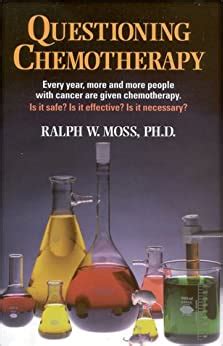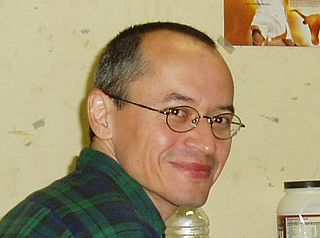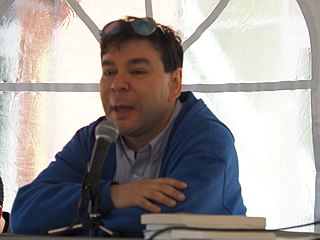A Quote by Suleika Jaouad
Like a lot of other cancer patients lying in hospital beds or in chemotherapy suites, I have spent a fair amount of time fantasizing about jetting off to a tropical island.
Related Quotes
A study was done which shows the majority of oncologists who refer patients for chemotherapy for lung cancer would not themselves take chemotherapy for lung cancer. And in fact if the chemotherapy involved cis-platen, something like 75% of them said they wouldn't take it. But what do these people do all day long? They're sending people for cis-platen.
In 1975, the respected British medical journal Lancet reported on a study which compared the effect on cancer patients of (1) a single chemotherapy, (2) multiple chemotherapy, and (3) no treatment at all. No treatment 'proved a significantly better policy for patients' survival and for quality of remaining life.'
I think one possibility [in the future] might be chemotherapy. And I'm always hesitant to say that because it makes it sound like I'm against chemotherapy. Right now, chemotherapy is the best cancer treatment therapy we have. But let's say we find some way where we can almost genetically engineer the DNA of our being and fight cancer that way. Then, the idea that we used to pump poison into people to fight off cancer will almost seem like the use of leeches or something.
A noted cancer specialist in Boston said he believed that if some simple and inexpensive replacement for Chemotherapy for the treatment of cancer were found tomorrow, all US medical schools would teeter on the verge of bankruptcy, so integral a part of their hospital revenues is oncology, the medical specialty of cancer treatment
I look upon cancer in the same way that I look upon heart disease, arthritis, high blood pressure, or even obesity, for that matter, in that by dramatically strengthening the body's immune system through diet, nutritional supplements, and exercise, the body can rid itself of the cancer, just as it does in other degenerative diseases. Consequently, I wouldn't have chemotherapy and radiation because I'm not interested in therapies that cripple the immune system, and, in my opinion, virtually ensure failure for the majority of cancer patients.
It's easy enough to predict that there will be conflict, but you place yourself in a maelstrom when you offer a view about the conflict, and I don't have an investment in one side or the other; I feel compassion for both sides. I've spent a fair amount of time in Gaza and Israel, done a lot of reporting and lived over there, and the tragedy is sometimes overwhelming. At the same time, America does have an investment in what happens.
Money spent on vegetative patients is money not spent on preventive care, such as flu shots and mammograms. Each night in an ICU bed for such patients is a night that another patient with a genuine prognosis for recovery is denied such high-end care. Every dollar exhausted on patients who will never wake up again is a dollar not devoted to finding a cure for cancer.
Cancer has taught me a lot of things. Maybe it is the best thing that has happened to me. I can't say right now, but maybe some years down the line, I would realise. When I was taking chemotherapy, there were a lot of elderly patients, and that would inspire me. I thought, 'If they can be cured, why can't I be?'
The Bucket List is a movie about two old codgers who are nothing like people, both suffering from cancer that is nothing like cancer, and setting off on adventures that are nothing like possible. I urgently advise hospitals: Do not make the DVD available to your patients; there may be an outbreak of bedpans thrown at TV screens.





































